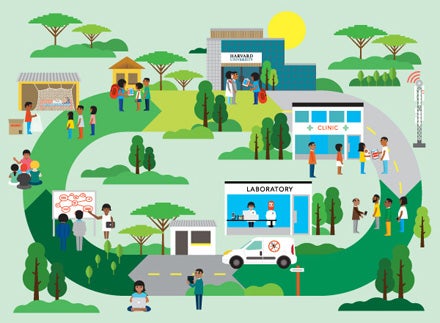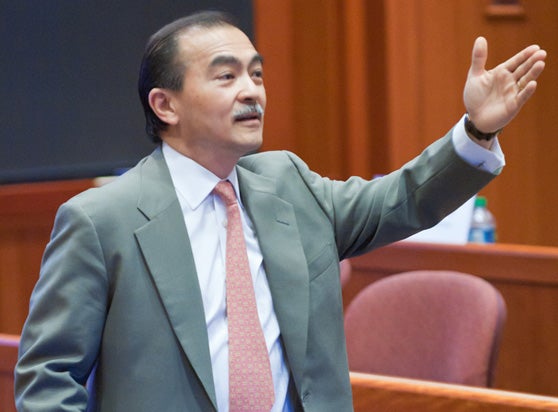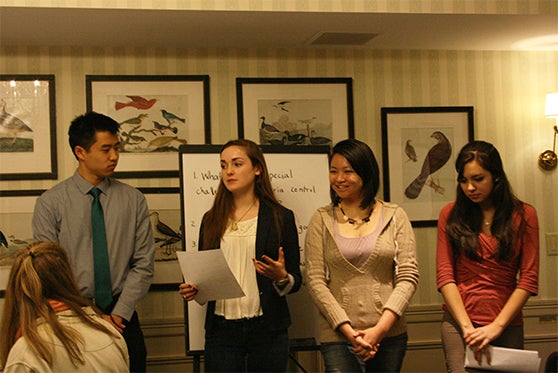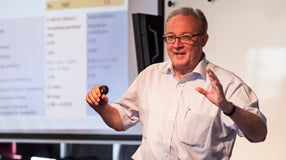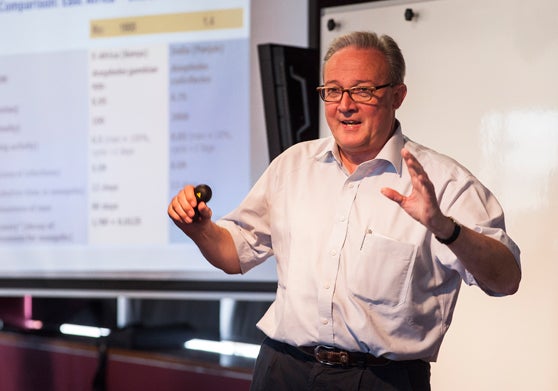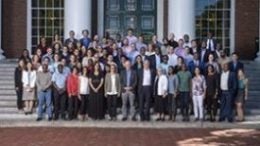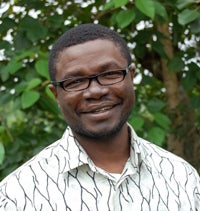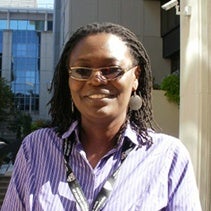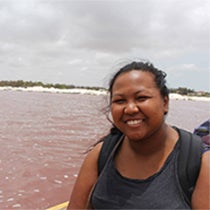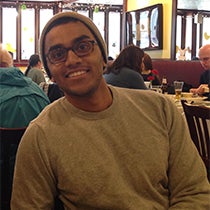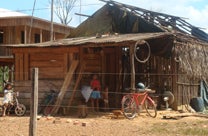Graduate/Postdoctoral Activities
Malaria Control: From the Bench to the Field Course
With widespread environmental changes and population migrations, malaria has re-emerged and persisted under conditions of poverty in different areas of Latin America. The knowledge base of the molecular and cellular biology of Plasmodium parasites has exploded in the last decade. Still the impact of this knowledge and related research advances to control malaria transmission and disease is limited.
As part of a joint effort with collaborators in Brazil, the Harvard T.H. Chan School of Public Health convened Malaria Control: From the Bench to the Field, a new course that explored key aspects of malaria research, including fundamental elements of Plasmodium invasion, homing/latency, and transmission, as well as field-based approaches and testing. Held at the Fiocruz research facility in Porto Velho, Brazil, course participants included graduate students and post-doctoral fellows from Harvard University (Medical School, School of Public Health, etc.) and from academic institutions in Brazil and Latin America.
At the start of the course, students participated in a two-day public workshop titled, “Multidisciplinary Malaria Research in the Era of Elimination,” led by internationally renowned scientists and teaching faculty who presented and discussed recent advances in areas of parasite biology, vector biology, entomology, immunology, pathogenesis, and epidemiology. The main focus of the workshop centered on how research findings provide new insights to solve questions related to drug resistance, vector control, clinical management, and control of parasite transmission.
Immediately following the workshop, students participated in a 4-day course that was composed of lectures, discussions, site visits, and laboratory work. Lectures covered aspects of clinical management of malaria patients, interventions to control malaria transmission (and their challenges), and malaria surveillance. Site visits facilitated the understanding of the diverse ecological settings, and associated challenges regarding access, surveillance, and control of the disease. Sites included a combination of research laboratories, a malaria reference center, hospitals, riverine communities, and construction sites with intense environmental transformation. Laboratory-based skills training provided students with hands-on experience of state-of-art technologies and approaches. The course and public workshop were sponsored by the Harvard T.H. Chan School of Public Health, Oswaldo Cruz Foundation, David Rockefeller Center for Latin American Studies at Harvard University, National Institute of Science and Technology for Vaccines, and the Coordination for the Improvement of Higher Education Personnel.
